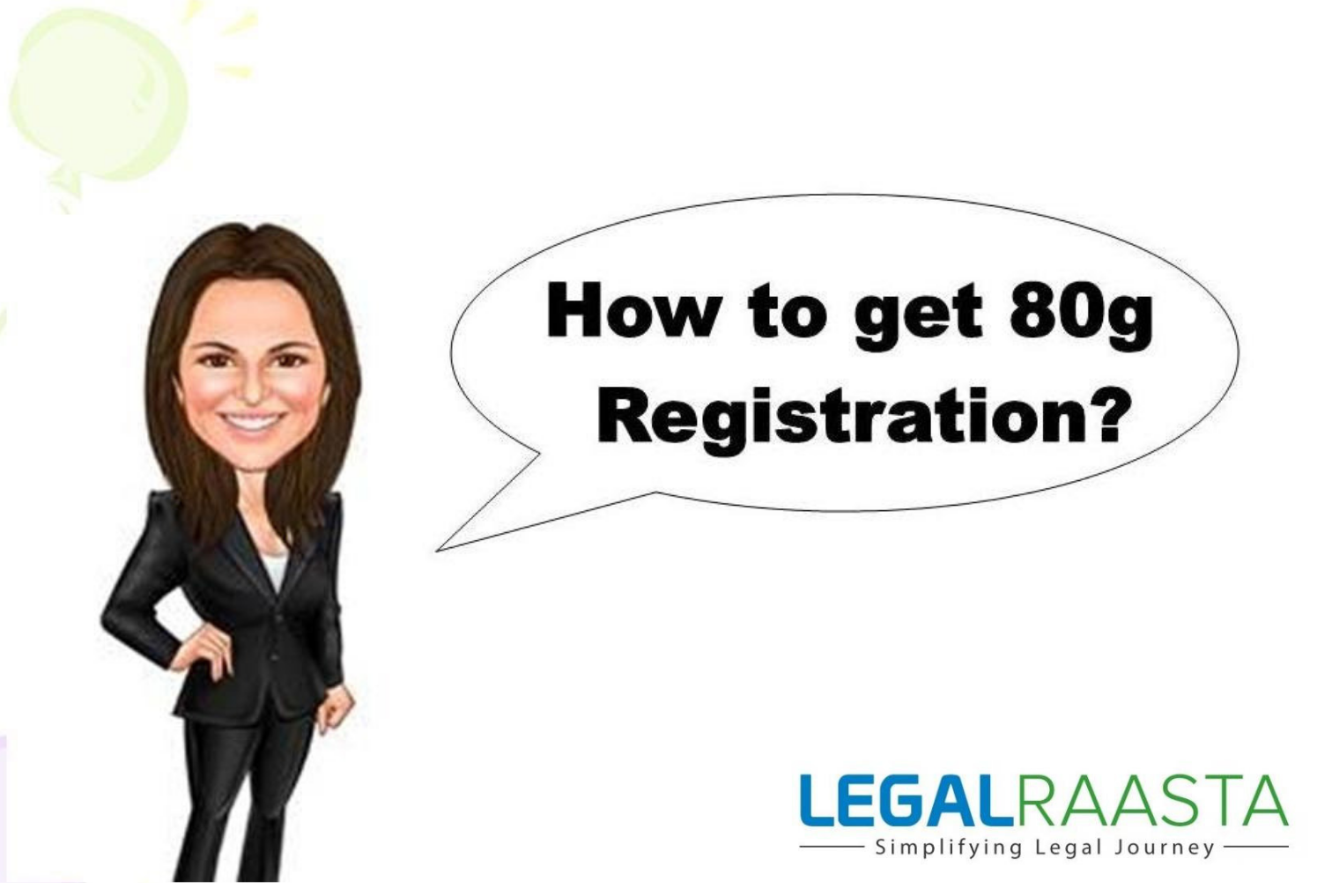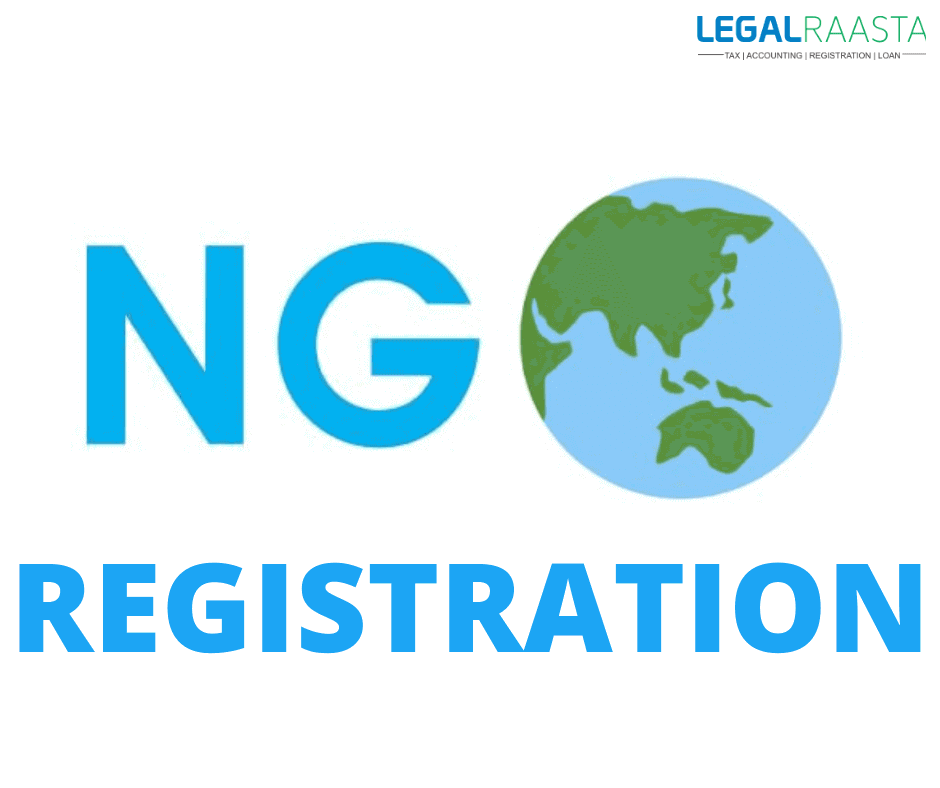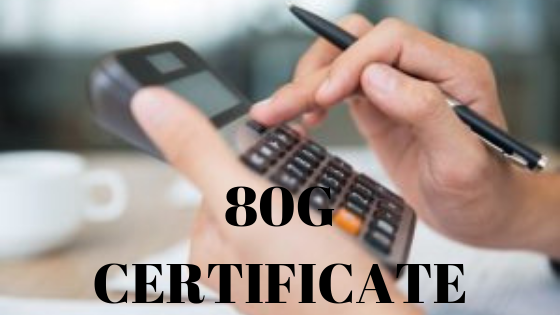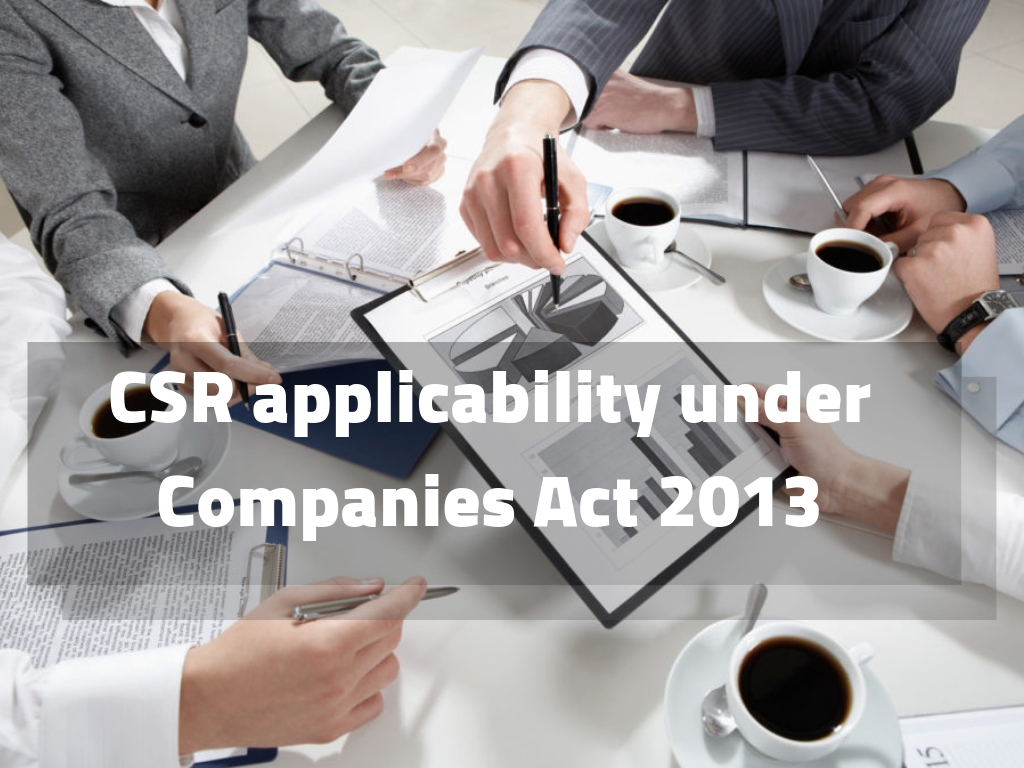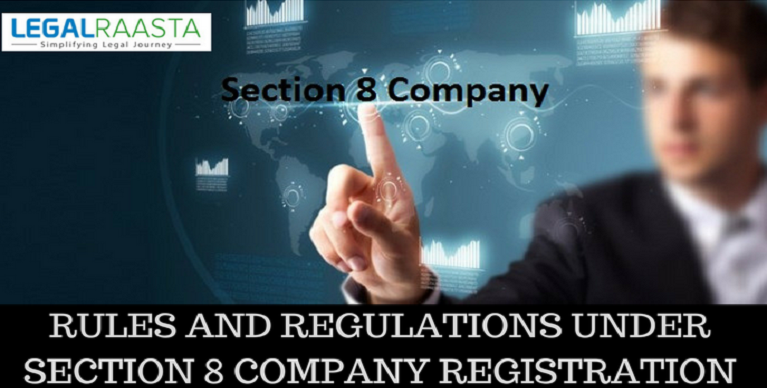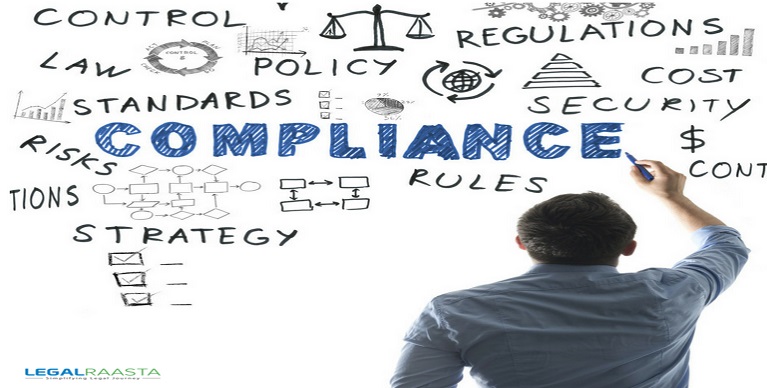Process for 12A and 80G Registration
A non-profit organization or non-governmental organization (NGO), a charitable trust or a Section 8 Company, can apply for 80G registration as well as obtain certification under section 12A. Both certifications can be applied together or it can also be done separately also. If an NGO wants to apply for both separately, in that case, it will have to apply for registration u/s 12A, first. Receiving 12A certification is a prerequisite to applying to get 80G registration as per the Income Tax Act, 1961. The applications have to be filed with the Income Tax Commissioner, having jurisdiction over the institution.Registration under Section 12A
Any business entity, that is not operating for profits, e.g. charitable trust, religious organization, Section 8 company or NGO, is eligible to claim a full exemption from income tax. The condition being that these must be registered under Section 12A. Therefore, it is important for all such NGOs, trusts or organization to get registered under Section 12A immediately after incorporation. If an NGO does not get 12A Certificate, it will have to pay income tax on surplus during the year. Regardless of whether the NGO Registration is done as a trust, registered as a society or a Section 8 Company, it will have to seek a 12A certification to avail tax exemption. Without this, your receipts would be entitled to normal tax rates and the beneficial exemptions available would evade you. It serves as a legitimate proof of the existence and purposes of your NGO. The registration would also help you in seeking grants from government or organizations abroad.Eligibility for 12A Certificate
- Charitable Trust, Religious Trust, Society, and Section 8 Company, that has been formed to provide benefits to the public.
- Private or family Trusts are not eligible.
Process
[caption id="attachment_20175" align="aligncenter" width="577"]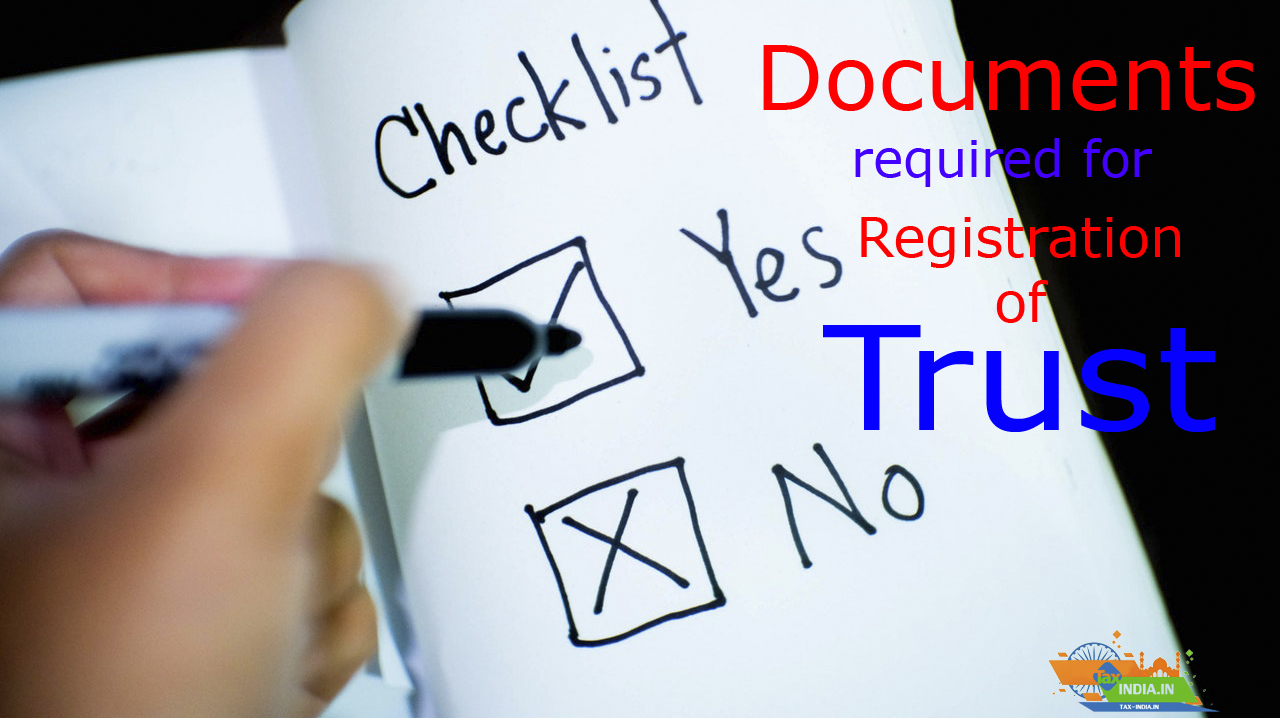 80g registration: Process for 12A Registration: LegalRaasta[/caption]
It is a one-time registration process. Before applying for an exemption certificate under section 12A, the organization has to get NGO Registration under the Income Tax.
80g registration: Process for 12A Registration: LegalRaasta[/caption]
It is a one-time registration process. Before applying for an exemption certificate under section 12A, the organization has to get NGO Registration under the Income Tax.
- For the application, a duly filled in Form 10A needs to be submitted to the Income Tax Commissioner.
- Following documents need to be enclosed:
- List of name, address and Pan details of the trustees/managers;
- A certified copy of the registration certificate when the trust was established,
- A certified copy of the document (Trust deed/MOA and AOA) which is evidence that this institution/trust exists and is registered,
- NOC from the Landlord (where the registered office is situated),
- Copy of PAN card of NGO,
- Address Proof for the NGO, copy of Electricity Bill/Receipt of Tax on House Property/Water Bill.
Certification u/s 12A of the Income Tax Act
On receipt of a duly filled application, the Tax Commissioner shall review the same. Upon review, he may ask for additional information or documents to submit. If not satisfied, he may reject the application of an NGO. Once the application and the information are satisfactory, the Commissioner shall pass an order in writing, registering the Trust/Institution under Section 12A of the Income Tax Act. The NGO Registration, once completed, is valid for a lifetime.Benefits of Registration under Section 12A
The benefits of getting a 12A Registration are as follows:- The income received will be exempted from taxation.
- The fund that is used for charitable or religious purposes is termed as income application. It is nothing but the expenses on charitable or religious purposes while calculating the income of the trust.
- The organization can avail benefits for accumulating or setting aside income. Provided it is not more than 15%.
- The accumulation of income, that, otherwise, get included as income application according to Section 11(2), will not be included in the total income.
- NGOs are entitled to receive grants and funds from various agencies, Government, as well as International. These agencies have been entrusted to provide grants to 12A registered NGOs.
- Avail benefits under the Foreign Contribution Regulation Act, 2010 or FCRA.
- The Finance Act of 2014 has extended benefits of registration for the trust, institution or a Section-8 Company that has been registered under Section 12AA.
- The 12A registration is a one-time registration. Once the registration is made, it will be active till the date of cancellation of the registration. There is no need for renewing the registration. Therefore, these benefits can be claimed, as and when required by the NGO.
80G Registration
[caption id="attachment_20176" align="aligncenter" width="560"]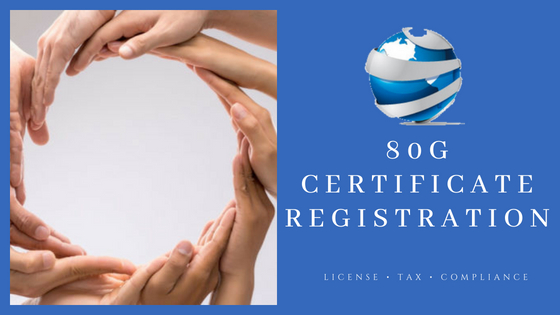 80g registration: Process: LegalRaasta[/caption]
80G Registration under the Income Tax Act is issued to an NGO, by the Income Tax Department. The objective behind providing the 80G certificate is to encourage more donors and more donations to come to such organizations. The benefit that a donor avails by donating to the organizations with 80G and NGO Registration is that he gets a tax exemption of up to 50% of his donation. The donor is allowed to deduct these donations from their Gross Total Income. The donor would just need to attach the stamped receipt that was issued by the NGO to him, to avail the tax exemption. The receipt must mention the name, date, and PAN of the organization.
80g registration: Process: LegalRaasta[/caption]
80G Registration under the Income Tax Act is issued to an NGO, by the Income Tax Department. The objective behind providing the 80G certificate is to encourage more donors and more donations to come to such organizations. The benefit that a donor avails by donating to the organizations with 80G and NGO Registration is that he gets a tax exemption of up to 50% of his donation. The donor is allowed to deduct these donations from their Gross Total Income. The donor would just need to attach the stamped receipt that was issued by the NGO to him, to avail the tax exemption. The receipt must mention the name, date, and PAN of the organization.
Eligibility
Not all NGOs or trusts are eligible for 80G registration. There are certain rules that need to be followed to obtain it. These have been listed below:- Donation made to charities that have been prescribed u/s 80G,
- The NGO has been duly constituted as a Public Charitable Trust or registered under section 25 of the Companies Act, 1956. It may be a registered society or a Section 8 Company under the Companies Act’2013 or is a University established by law Or is any other educational institution recognized by the Government or by a University established by law. An affiliation to any University established by law. An institution financed wholly or partially by the Government or local authority.
- Following are the details under which the government can reject your claim for an 80G certification:
- No Religious Activity: The charities involve religious preaching, or are done towards a particular caste or creed,
- Separation of Business and Charity: If the entity is involved in any business/financial transactions that do not account for donations alone, you would have to keep both separate. Else, your business may not qualify for 80G registration.
- No Misuse: The donations received towards the cause must not be used for any other purpose, even within the organization. A strict accounting is mandatory.
- Diversion of funds: If the NGO is found funding a political party or gifts are made to trusts operating outside India, your 80G certification request will get rejected.
- The registered trust/institution/Section 8 Company should not hold any Non-Exempt.
Process
The most important requirement for getting 80G registration is to get registered under Section 12A. After that:- The application is Form 10G to the Income Tax Commissioner,
- The application is to be enclosed with the following documents:
- Registration Certificate and MOA/Trust Deed
- No Objection Certificate (NOC) from the Landlord (where the registered office is situated),
- Copy of PAN card of the NGO,
- Address Proof, as in the copy of Electricity Bill/House tax Receipt/Water Bill,
- Proof of the welfare activities carried out & Progress Report since incorporation or else, last 3 years,
- List of governing body board of trustees members with their contact details
- The Statement of Accounts, Balance Sheet, Income Tax Return documents since incorporation or else, last 3 years,
- List and details of donors, such as their address and PAN,
- Copy of Registration u/s 12A or copy of notification issued under section 10(23)or section 10(23C).
Certification under Section 80G
On receipt of the application, the Tax Commissioner will scrutinize the details. He may ask for some additional documents or information. Once satisfied, he may pass an order in writing registering the Trust/Institution under Section 80G of Income Tax Act. If not, he may reject the application. The time limit by which the commissioner has to pass an order, of either approval or rejection, shall not exceed 6 months from the end of the month in which such application was made. In calculating the is period of 6 months, any time wasted by the applicant by not complying with the directions of the Commissioner would be excluded.Benefits of 80G Registration under the Income Tax Act
The direct advantages of registration of NGO with 80G would occur to the donor. He is entitled to claim a tax deduction, by using the receipt of the donation he gets from you. In other words, he can use 80G registration of your NGO to reduce the amount he has donated to your organization from his total taxable income. The threefold benefits of this registration would be:- As a society bylaw, 80G registration makes your NGO a promising prospect, enhancing its goodwill and the confidence of those associated with your brand.
- It enables the donor to reap the tax advantage of lowering taxable income associated with it, as well as, glad about contributing to a good cause.
- Only an NGO with both 12A and 80G registration is eligible for government funding.
- Getting an 80G registration also facilitates seeking foreign contributions.
Related Articles:How many members are required for Section 8 Company Registration?
What is the difference between Section 8 Company and Trust?
What are the secreterial or annual compliances for Section 8 company?

